
Kaşdoğan, Duygu, Ebru Yetişkin, and Maral Erol. 2018. "An Archaeology of STS in Turkey." In STS Across Borders Digital Exhibit, curated by Aalok Khandekar and Kim Fortun. Society for Social Studies of Science. August. http://stsinfrastructures.org/content/archaeology-sts-turkey
STS has a fragmented past in Turkey. There is not a monolithic genealogy. This collaborative exhibition aims at exploring the sources of such fragmented and discontinuous past because STS artifacts are mostly distributed, forgotten, and scattered in Turkey.
As IstanbuLab, we have been excavating these STS artifacts so that we can trace their making and we can highlight the factors that caused gaps, discontinuities as well as obstacles against the grounding of STS in Turkey. We treated the archival documents as teaching materials to learn about the foundational stories of STS, and thus, marked some to highlight particular approaches and developments. Our archeological focus on finding out the missing fragments is related with our purpose of stimulating the generation and spread of critical, transdisciplinary and constructive studies of STS in Turkey.
Our ongoing curatorial research is mainly based on participatory observation and unstructured interviews in the field. When we excavated the artifacts of STS in Turkey, we observed that there are two related layers formed on the ground, namely, institutional and intellectual. At a more surface time/space, within the institutional layer, we found educational programs, STS courses and research initiatives that are disintegrated from each other. An organic collaboration and interaction among interested institutions are almost invisible within this layer. At a deeper space/time, within the intellectual layer, we reveal the emergence of publications and events that are related to science and technology but not always directly linked to STS. Although some publications and events were produced by the actors within the institutional layer, the links are considerably weak.
We would also like to draw attention to a number of processes that were prominent in the beginnings of STS in Turkey. In the late 1990s, Turkey was in a process of integration to the European Higher Education Area as well as aspiring towards building a knowledge-based society. We witnessed the emergence and (dis)continuity of STS educational programs, and science and technology policy-oriented research along with the integration process of Turkey to the European Union.
We also found out that these educational programs were designed in connection with particular international relations. However, these efforts, as in the case of the ESST-related STS MA program at Istanbul Technical University, were not sustainable, especially given the lack of financial resources to support collaborative teaching at an international level along with the economic crises of 1999, 2001 and 2008. The fact that STS graduates could not be integrated in local STS education programs as academic staff was one of the sustainability problems of STS in Turkey. Another facet of this sustainability problem was the uninterrupted human-centered approach in the social sciences and humanities.
As an independent research initiative, IstanbuLab emerged as consequences of such gaps and problems faced in the process of the institutionalization of STS in Turkey. By revealing the archeology of STS in Turkey, we aim to diagnose such problems and navigate through the unexplored ways of doing STS in a transnational context.
Duygu Kaşdoğan
Ebru Yetişkin
Maral Erol
İstanbul & İzmir, 2018
I. Meta-Narrative: An archaeology of STS in Turkey
II. IstanbuLab: Science, Technology, and Society Platform in Turkey
III. Institutional Layers of STS in Turkey
IV. Intellectual Layers of STS in Turkey
Established in 2016, IstanbuLab provides a collaborative and transdisciplinary research space for academics, activists, and artists engaged in the social studies of science and technology within the Turkish context and beyond. By generating and prioritizing collective research environments, IstanbuLab aspires to stimulate the generation and spread of critical and constructive studies of Science, Technology, and Society (STS) in Turkey.
STS Across Borders digital collections are focused through ten shared questions that can be asked across all STS formations so as to enable comparative insight.
...Read more
STS Across Borders is a special exhibit organized by the Society for Social Studies of Science (4S) to showcase how the field of Science and Technology Studies (STS) has developed in different times, places...Read more
STS and STS-related educational and research programs are not widespread in Turkey, especially given the fact that “Science, Technology, and Society” and/or “Science and Technology Studies” has yet to be acknowledged neither as a discipline nor as a field of associate professorship* by the Council of Higher Education (YÖK) in Turkey. Nevertheless, there have been considerable initiatives to establish graduate programs in STS as well as in related fields.
For this part of the exhibit related to STS graduate programs, we decided to highlight three main programs: 1) Science and Technology Policy Studies at Middle East Technical University (METU), in Ankara (1997-ongoing); 2) Science, Technology, and Society at Istanbul Technical University (ITU), in Istanbul (2000-2006); and, 3) Science, Technology, and Society at ITU (2016-ongoing). All these graduate-level educational programs are/were in English. In this text, we also list other related grad programs.
Our selection of these three programs for this exhibit is not arbitrary. The graduate program at METU -that is also closely linked to the “Research Center for Science and Technology Policies” established under the Office of President at the same university- stands as the first educational program in the social studies of science and technology. The MA programs in Science, Technology, and Society, which were launched in different time periods at ITU, have been the only STS degree programs with a thesis requirement.
Although there had been a similar rationale behind the establishment of these three programs, the differences, and thus, pluralities of these programs need to be emphasized, e.g., with regard to the context in which they emerged and local and transnational networks through which these programs became possible.
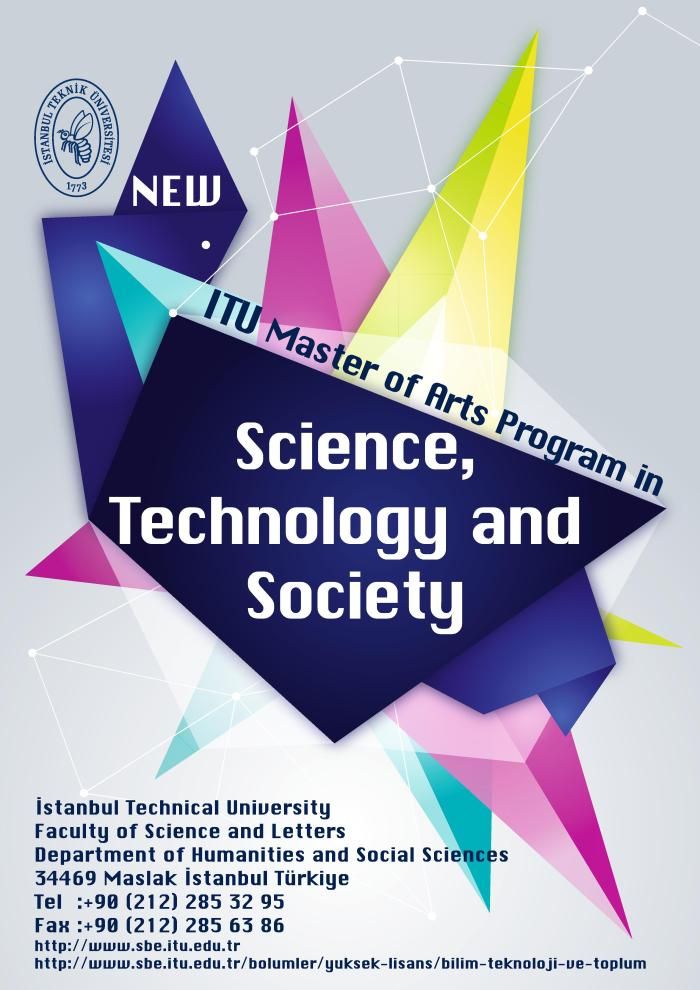
In 2016, the Master’s Degree program in “Science, Technology, and Society” was launched under the Institute of Social Sciences at Istanbul Technical University (ITU) with the initiative of Prof. Dr. Mehmet Karaca (president of the university) and Prof. Dr. Aydan Turanlı (director & program coordinator). Currently, it is the only MA program with the name of STS in Turkey. This program has also established Erasmus+ connections with “Science Studies” Master’s Degree Program of Aarhus University, Denmark and “Science and Technology Studies” Master’s Degree program of Munich Technical University, Germany.
ITU STS endeavors “to widen the borders of knowledge in science, technology, and arts and fulfill the needs of society with the applications of this knowledge,” as it is noted on its website. The program is designed to help in understanding and solving “ ethical, social, cultural and political problems created in the complicated structure of modern technological society.”
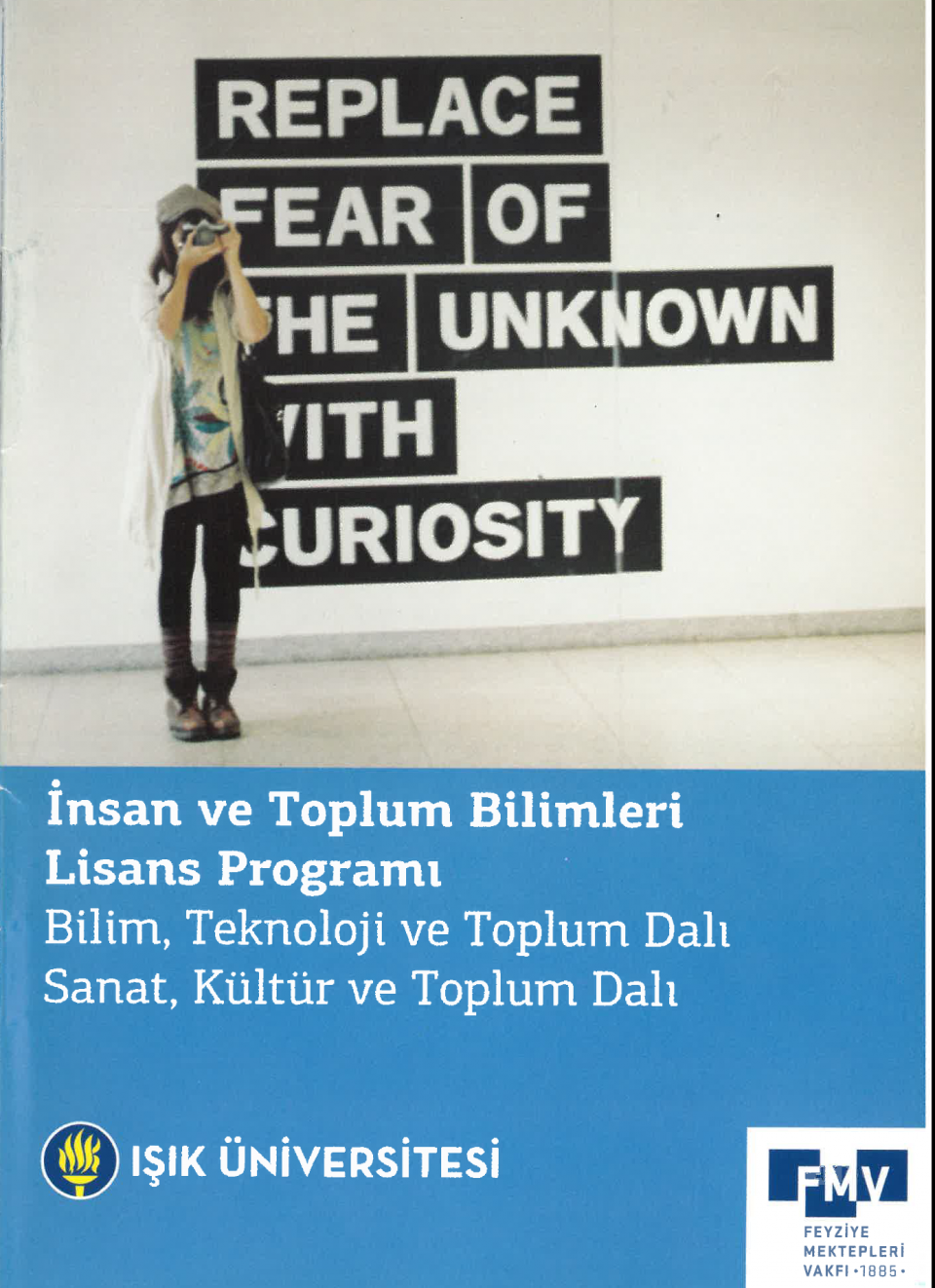
The undergraduate program in Social Sciences and Humanities at Işık University included two branches -1) Science, Technology, and Society; 2) Art, Culture, and Society- for specialization.
STS Program @ Işık University
STS has yet to be institutionalized as an educational undergraduate program in Turkey, given that it is still not recognized by the Higher Education Council. In such a context, Işık University has been the first private university in Turkey to offer a substantial number and range of STS courses through the "Science, Technology, and Society" branch at the Department of the Humanities and Social Sciences.
The decision to open the STS program originated in 2005, with the strategic plan of the university prepared during the presidency of Prof. Dr. Ersin Kalaycıoğlu. Upon this idea, the Prof. Önder Pekcan, who was the dean of Faculty of Arts and Sciences at the time, suggested Prof. Dr. Hacer Ansal as the person for this job (and his former colleague from ITU), based on her role in the ITU STS Program. Hacer Ansal left her job at ITU for Işık, with the aim of starting an undergraduate program of STS. However, as the program she prepared was being discussed in the university senate, the idea that STS was not a well-known field in Turkey and it would be more appropriate to have it as a branch under a more general Humanities and Social Sciences department prevailed. The program was revised accordingly and started to accept students in 2007.

Despite the small number of STS and STS-related educational programs in Turkey, there are considerable STS courses offered by different departments at various universities. The earlier attempts to teach STS courses go back to the 1990s, when the course "Science, Technology, and Society" began to be offered to the engineering students at Bilkent University, Ankara. Professor Haldun M. Ozaktas reflects back on this process in his article entitled "Teaching Science, Technology, and Society to Engineering Students: A Sixteen Year Journey" (2013). There, he explains the motive behind the opening of an STS course at Bilkent for engineering students as such (p. 1440):
During the early nineties, gaining ABET (Accreditation Board for Engineering and Technology) accreditation became a goal for elite universities in Turkey. Until that time the need for incorporating ethics or social dimensions courses in engineering programs had not been felt by most institutions. ABET clearly specified this as an essential component, but there was neither any institutional experience nor examples to follow in Turkey. I took this opportunity to propose this course in 1995 and since then it has been the key course in meeting ABET requirements on ethics and social dimensions.

STS Grad Course (BTT 516E)
This course is focused on the analysis of science, technology and society issues through films. The concepts to be discussed through science-fiction (in Turkey) and other films are technology and modernity, technology and bioethics, virtual world and dystopia/utopia, technology and democracy, representation of science, scientists, laboratories.

Sociology of Science and Technology (SOSC 109)
This is the poster of the class taught by Duygu Kaşdopan in Fall 2017 at Koç University. The course "Sociology of Science and Technology" is offered by the Department of Sociology as part of the core curriculum, and offered to undergraduate students coming from different departments.
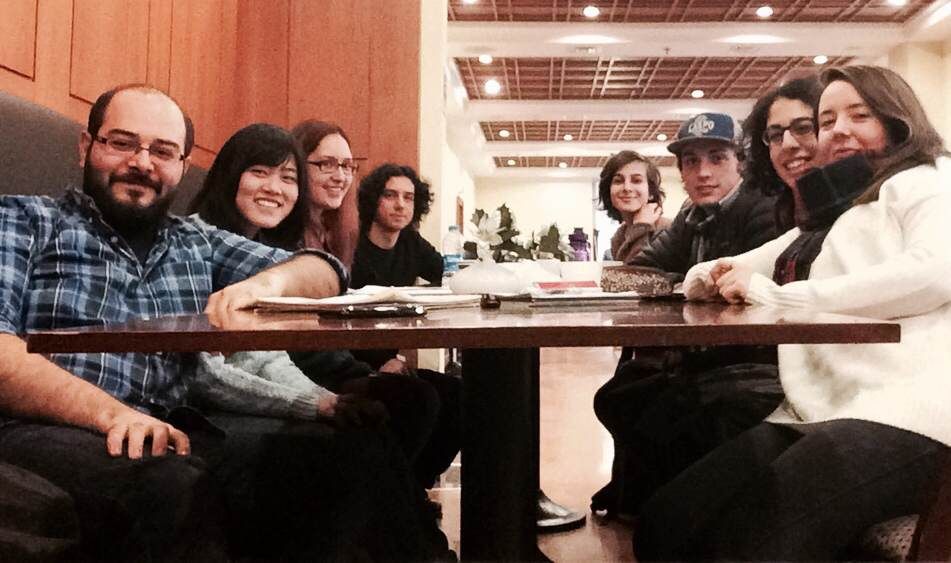
Science, Technology, and Society (CSHS 533)
Photo of Fall 2014 class - MA course offered by Murat Ergin in the Department of Sociology at Koç University. The course was thought in Fall 2012, 2013, 2014, and 2015.

Contemporary Art, Science, and Technology (STS 311)
This course was designed as part of a transdisciplinary research conducted by Ebru Yetişkin, and offered in the STS undergrad program at Işık University in Fall 2014. Each week students explored the interrelations of science, technology and art, art and curating as research practices. By way of audio-visual artworks, exhibition trips, and reading materials, students were expected to make a topic-presentation in the class. As for the final project work, the instructor worked with students on the research process of an exhibition, “WAVES”, which was launched in January 2015. Giving a particular focus on the conceptualization of “WAVES” from a transdisciplinary perspective, each student will made a presentation of a different kind of wave (i.e. brain waves, light waves, sound waves, financial waves, social protest waves, gentrification waves etc) and conducted a structured interview with an artist of the exhibition. The students explored and revealed how each artwork was related to a specific kind of wave. The interview questions were developed and edited in collaboration with the instructor. Each interview was be published on the website of the exhibition >> http://www.waves-waves.com/interviews/
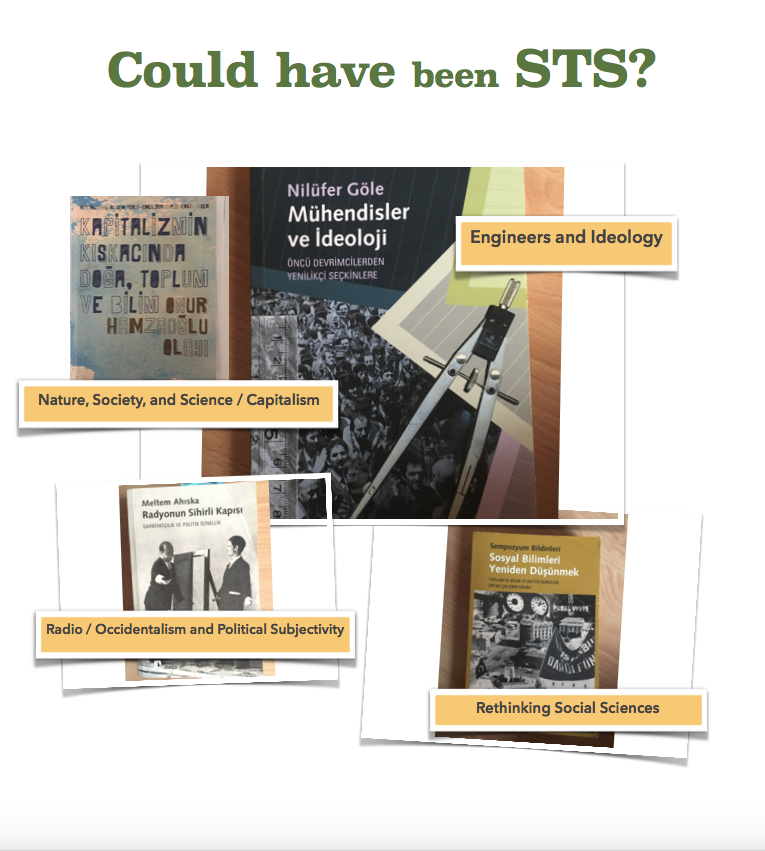
When we examine the published materials in Turkish, it is really hard to talk about the existence of a standalone STS literature in Turkey. Nevertheless, we can find STS-related writings that have been shaped in the different field of studies, among which the history of science and technology occupy a considerable space.*
When it comes to the discussions of science and technology in relation to social issues, we first witness the emergence of a literature by the 1960s, at the times of the First Five-Year Development Plan (1963-1967), which made visible science, technology and society relations at the policy level.
By the 1960s in Turkey, science and technology came to be evaluated as a means towards social and economic development. Research conducted at different universities, especially in the fields of economics/development economics, varied in time and came to shape science and technology policies in the light of new theories, concepts, and methods.
This piece is in Turkish and introduces an intellectual genealogy of STS in Turkey. This document is an excerpt from the article written to introduce STS to the Turkish audience as well as reflecting first efforts in providing a genealogical analysis of STS in Turkey. The full article is...Read more

STS Book on Turkey (I)
This book was written by a distinguished sociologist Hasan Ünal Nalbantoğlu, who was also the founding member of TEKPOL @ METU. It provides a critique of transformations in culture, science, and university in the age of culture industry, and searches for alternatives. He invites us to question our relation to knowledge in these times when universities get highly shaped through the ethos of marketing and techno-science.

STS Book on Turkey (II)
Epistemik Cemaat [Epistemic Community] by Hüsamettin Arslan is a book about the sociology of science. The book is an edited version of Arslan's Ph.D. thesis, which was completed in 1991 in The Department of Sociology at Istanbul University, and published in 2007. Especially the second chapter, "Epistemic Community (Sociology of Scientific Knowledge)" problematizes the ways in which knowledge is produced. The author emphasizes the making of epistemic monopoly and suggests relativism as a strategy to deal with such a monopoly. The book offers a well-structured discussion in the sociology of science with references to D. Bloor, H.M. Collins, K.D. Knorr-Cetina, T. Kuhn, B. Latour and J. Law. As for the conclusion, Arslan argues that there have been two epistemic communities in Turkey since the late 19th century: 1) classic or Islamic epistemic community; and, 2) modern epistemic community. We consider such conclusion as another symptom of the lack of STS perspectives, such as self-reflexivity.
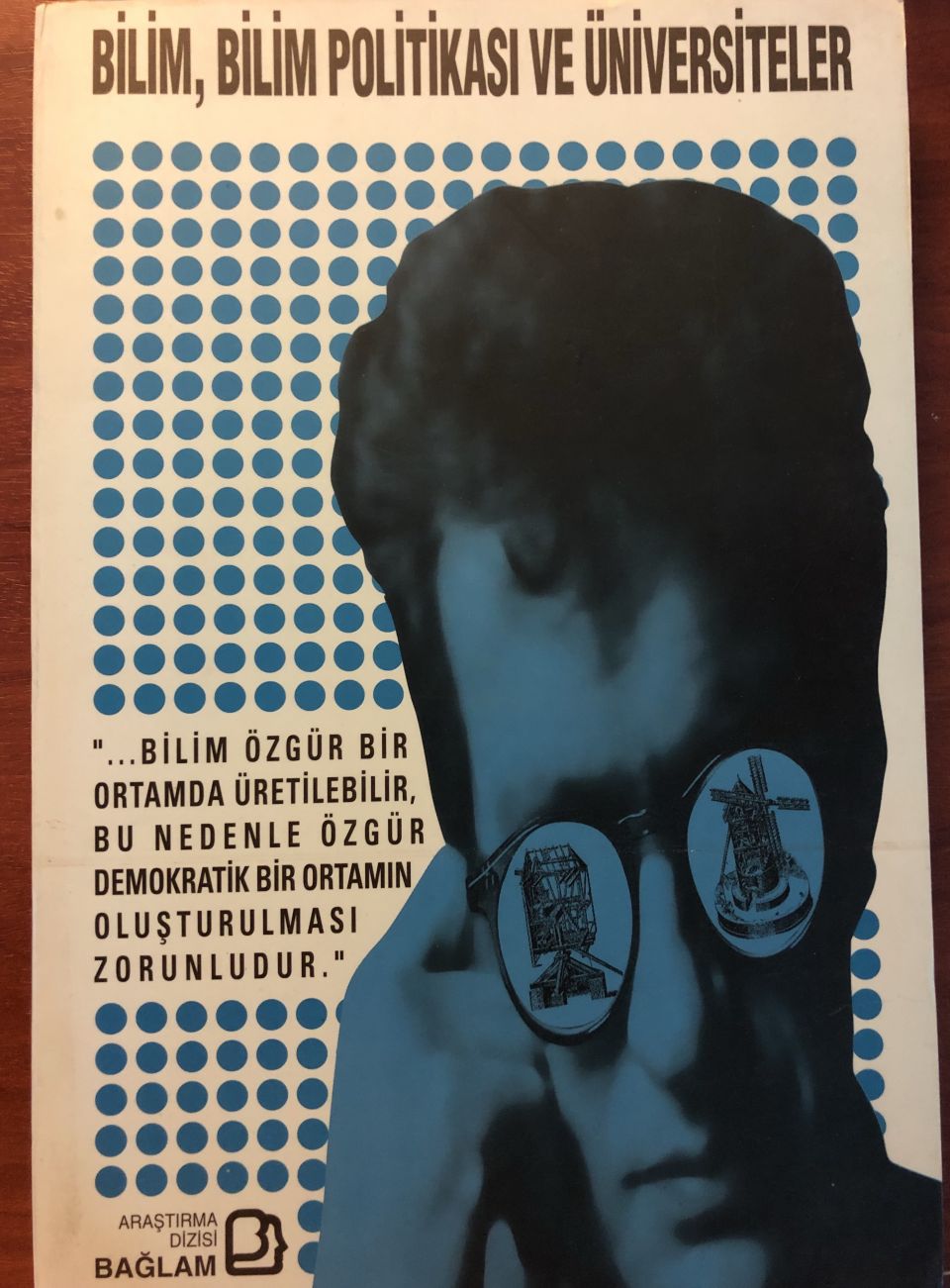
STS Book on Turkey (III)
Bilim, Bilim Politikası ve Üniversiteler [Science, Science Policy, and Universities] is a collection of essays that were presented in a conference organized by The Commission of Scientific Activities at the Association of Research Assistants. The conference was held on April 20-21, 1995 at Yıldız Technical University in Istanbul. The book was edited by Emine Akalın, Hakan Aydoğdu and Reşat Saraoğlu. The extensive range of topics that were discussed in this book ranges from "science and university", "philosophy of science and methods", "science language", "history of science", "science and art", "science and research institutions", "science ideology and power relations." In the book, there are also 2 separate sections, entitled "Science and Technology" and "Science and Society". This segregation is another example that reveals the lack of STS perspectives in Turkey because the content of the book demonstrates how many issues related to science, technology, and society are mainly discussed from an essentialist perspective.

History of Science, Technology, and Medicine
The book was edited by historian of science Prof. Dr. Feza Günergun following the symposium entitled "Studies in the history of science, technology, and medicine in Turkey (1973-1998): Evaluation of the last 25 years and new horizons", and organized in October 1998 at the Department of History of Science in Istanbul University.

Translated STS Book (I)
Reflections on Gender and Science by Evelyn Fox Keller (1985 - translated by Haluk Barışcan, published in Turkish in 2007 by Metis Press)

Translated STS Book (II)
We Have Never Been Modern by Bruno Latour (1991 - translated by İnci Uysal, published in Turkish in 2008 by Norgunk Press)

Translated STS Book (III)
Science: The Very Idea by Steve Woolgar (1988 - translated by Hüsamettin Arslan, published in Turkish in 1999 by Paradigma Press)

Translated STS Book (IV)
Risikogesselschaft by Ulrich Beck (1986 - translated by Kazım Özdoğan and Bülent Doğan, published in Turkish in 2011 by İthaki Press)

First STS Conference in Turkey
Poster announcing the first STS conference that is organized in Turkey, by the Science and Technology Studies Network of Turkey (STS Turkey). The event will take place in September 2018, hosted by Middle East Technical University (METU) in Ankara, and with the financial support of Orient Institut Istanbul.

Workshop: History of Technology
The “History of Technology in Ottoman and Post-Ottoman Cities at the turn of the 20th century” workshop was held on 24th-25th of May 2018, with a focus on the time period between 1870 and 1940 when the technological novelties and their mutual interactions with society and culture played a crucial role in transforming the built environment of the Ottoman and post-Ottoman cities. The workshop was designed thematically to engage with the relationship of technology to infrastructure, economics, political structures, production, industrial progress, scientific knowledge and consumption/material culture.The public talks were given by Francesca Bray and Darina Martykánová. This event was organized by Nurçin İleri and Aude Aylin de Tapia, hosted by ANAMED (Koç University Research Center for Anatolian Civilizations) and IFEA (Insitut Français d'Études Anatoliennes), and sponsored by SHOT (Society for the History of Technology).
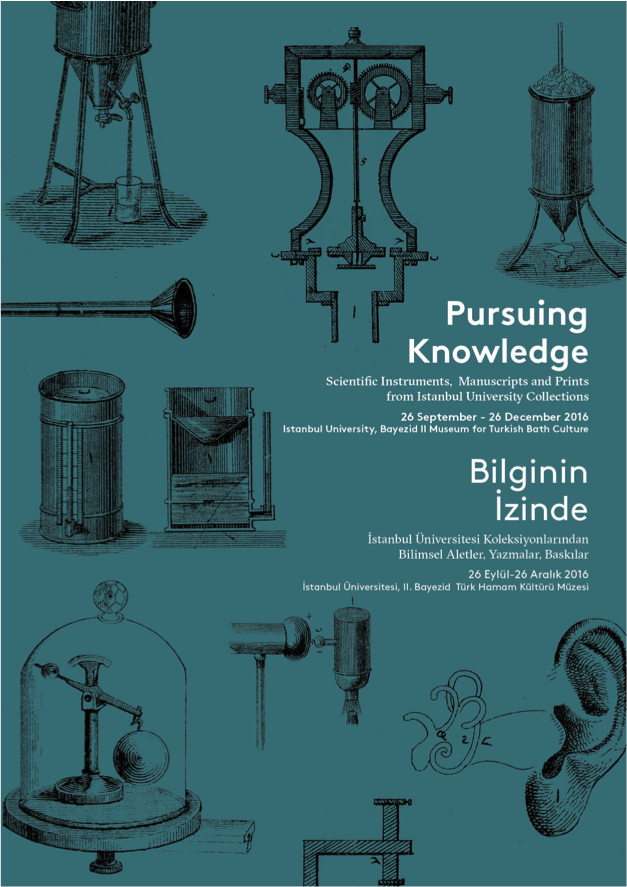
Exhibition: Pursuing Knowledge
(26 September - 26 December 2016 @ Istanbul University, Bayezid II Museum for Turkish Bath Culture)
The aim of the exhibition was to reflect the mobility of knowledge between Central Asia and Western Europe, throughout a chronology starting in late 13th century as well as reflecting the Ottomans' quest for knowledge both in the 'East' and the 'West'. The major objective of this event was to attract attention to history of science. Furthermore, this exhibition was a call to institutions and individuals in Turkey in caring for the preservation of material (scientific instruments, documents, software etc.) pertaining to the history of science and technology.

First International STS Symposium
(14-15 April 1999 @ Istanbul Technical University)
The organization committe: Yıldız Sey, Hacer Ansal, Özlem Onaran, Emrah Acar
This symposium was organized on the eve of the establishment of STS MA Program at Istanbul Technical University. International STS scholars, including, Andrew Barry, Wiebe Bijker, Wendy Faulkner, Deborah Fitzgerald, Trevor Pinch, J.J. Salomon, Ralph Schroeder, and Peter Weingart, participated. A panel entitled "Repercussions of Science and Technology on Turkish Society" was also organized as part of this symposium, moderated by Hacer Ansal (Panelists: Hasan Ünal Nalbantoğlu, Gürol Irzık, Yakup Kepenek, Baha Kuban, Aykut Göker).
Selected abstracts of undergrad projects by the students of Işık University STS Branch at the Department of the Social Sciences and Humanities.Read more